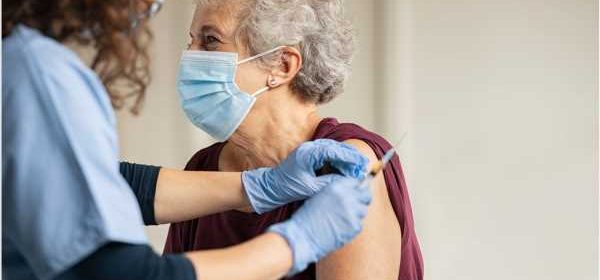How effective has Israel’s SARS-CoV-2 testing and vaccination campaign been against the UK variant?

Several genetic variants of severe acute respiratory syndrome coronavirus 2 (SARS-CoV-2) have risen to prominence during the course of the coronavirus disease 2019 (COVID-19) pandemic, one of which is the UK variant – termed B.1.1.7 by the Centers for Disease Control and Prevention (CDC).
This variant is associated with increased transmissibility compared to the wild-type virus due to several specific mutations in the spike protein that enhance affinity towards the angiotensin-converting enzyme 2 (ACE2) receptor of host cells. It has spread rapidly around the world since its discovery in December 2020.
.jpg)
A recent study by researchers at Tel Aviv University describes the UK variant’s rise to dominance in Israel. It also assesses the efficacy of the testing and vaccination programs employed by the government. The team has released their findings as a preprint on the medRxiv* preprint server.
How was the study performed?
The Israeli government enacted a mass polymerase chain reaction (PCR) testing process during the height of the pandemic, and the authors utilized over 300,000 records collected between December 2020 and February 2021 that allowed them to determine the proportion of various strains of the SARS-CoV-2 virus throughout the population.
Between December 6 and 22, 2020, the B.1.1.7 variant was not detected in those tested. By January 21, 2021, had become the major strain detected in Israel, with 92% of positive COVID-19 cases being attributed to this variant. The group utilized a previously-developed mathematical model to estimate the transmissibility of this strain. They noted that over the entire period examined, the B.1.1.7 variant was on average 45% more transmissible than the wild-type.
This is in-line with other studies from a variety of disciplines in biology and statistics that indicate increased transmissibility of 40-80%, a variability that is easily accounted for given the different population densities, age distributions, household sizes, and access to services in the many countries affected by the strain.
Were vaccines effective in lowering transmission?
The younger age groups (0-19 and 20-59) were observed to have a clear increase in the proportion exhibiting the B.1.1.7 strain over the short time period between late December and early February. In the over 60s, meanwhile, the proportionate change was initially more moderate.
The Israeli government also ran an impressive vaccination program during this period using the Pfizer mRNA-based vaccine, with 80% of those aged over 60 having received the first dose of the vaccine within 38 days of inception (by February 4). By January 14, 50% had been vaccinated, and after this point, the incidence of any SARS-CoV-2 strain in the over 60s plateaued and began to decline.
Additionally, the group compared the proportion of COVID-19 patients aged over 60 in the community to those living in nursing homes, finding that those in nursing homes are far more likely to have any strain of SARS-CoV-2 than those living more independently.
For the authors, this reinforces the concept of administering vaccines to those most at risk of serious outcomes and of propagating the virus first, and that pro-active surveillance of the at-risk population will allow containment and intervention at earlier stages.
The declining proportion of over 60s confirmed to have COVID-19, despite the preponderance of the virus in other age groups combined with the increased transmissibility of the dominant B.1.1.7 strain, is clear evidence of the efficacy of the vaccine, even after just one dose.
*Important Notice
medRxiv publishes preliminary scientific reports that are not peer-reviewed and, therefore, should not be regarded as conclusive, guide clinical practice/health-related behavior, or treated as established information.
- Munitz, A. (2021) The rise of SARS-CoV-2 variant B.1.1.7 in Israel intensifies the role of surveillance and vaccination in elderly. medRxiv preprint server. doi: https://doi.org/10.1101/2021.02.16.21251819, https://www.medrxiv.org/content/10.1101/2021.02.16.21251819v1
Posted in: Medical Science News | Medical Research News | Disease/Infection News | Healthcare News
Tags: ACE2, Angiotensin, Angiotensin-Converting Enzyme 2, Coronavirus, Coronavirus Disease COVID-19, Efficacy, Enzyme, Genetic, Nursing, Pandemic, Polymerase, Polymerase Chain Reaction, Protein, Receptor, Respiratory, SARS, SARS-CoV-2, Severe Acute Respiratory, Severe Acute Respiratory Syndrome, Spike Protein, Syndrome, Vaccine, Virus

Written by
Michael Greenwood
Michael graduated from Manchester Metropolitan University with a B.Sc. in Chemistry in 2014, where he majored in organic, inorganic, physical and analytical chemistry. He is currently completing a Ph.D. on the design and production of gold nanoparticles able to act as multimodal anticancer agents, being both drug delivery platforms and radiation dose enhancers.
Source: Read Full Article